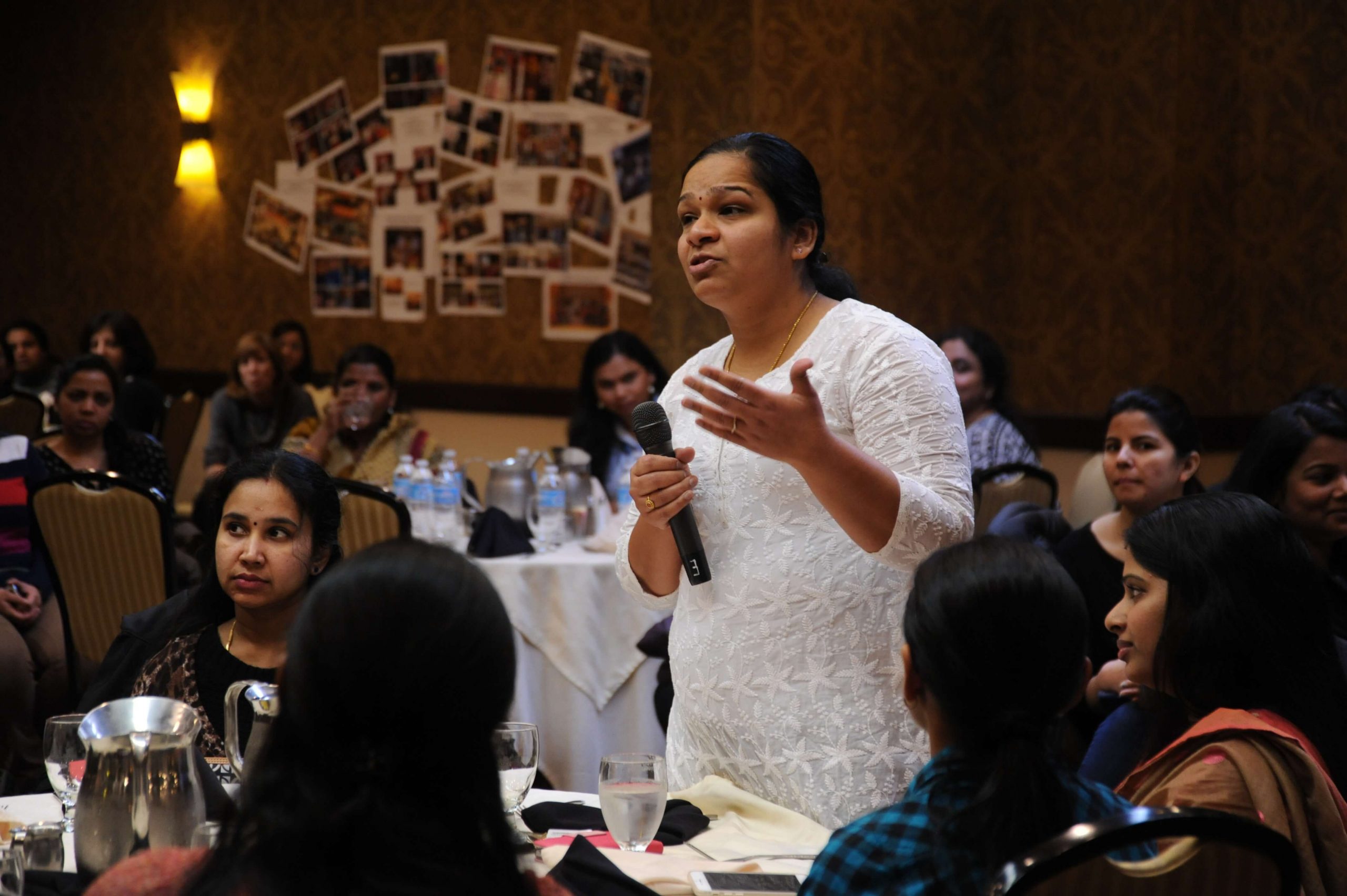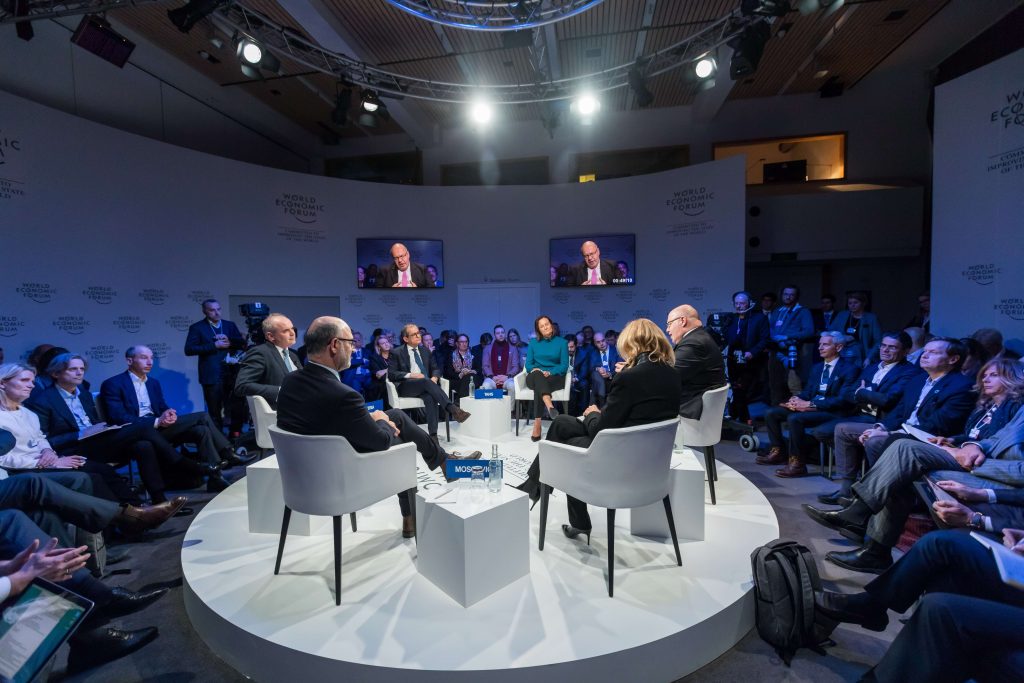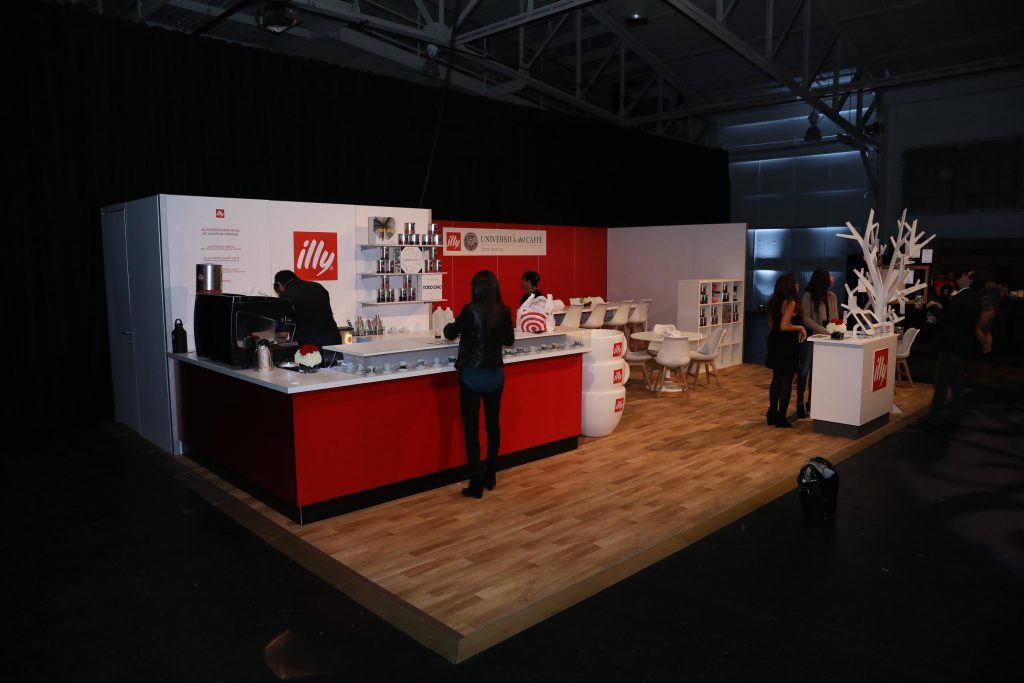Discussion-oriented sessions such as panels and fireside chats are tailor-made for conferences, meetings, and other corporate events. Many corporate events are enhanced with these kinds of sessions, but which conference discussion format is right for your event? There’s a wide range of formats to choose from, so it’s important to choose one that works for your event theme, topic, and tone.
1. Panel Discussion
This popular conference discussion format typically comprises three to four panelists, along with a moderator. The key is the choice of panelists. A group of people with complementary or opposing viewpoints generally provides more interesting discussion than a group in which every panelist approaches the topic from the same angle.
With the panel discussion format, the moderator isn’t themselves part of the panel. Rather, it’s their job to keep the discussion flowing, while guiding it to a satisfying conclusion by the end of the session. The moderator must also ensure that every panelist has a fair share of talk time.
Panel discussions generally start with introductions—by the moderator, of the panelists. In some formats, each panelist has a couple of minutes to introduce themselves and offer opening remarks. After opening remarks, the moderator kicks off the discussion with prepared questions. Then they continue to guide the discussion, while ensuring all panelists get involved. Audience questions can be included, or questions may come from the moderator only.
Common Panel Discussion Formats
- Mainstage: A traditional panel format, without either a presentation or an audience Q&A session
- Presentation: Each panelist has a few minutes each to present a case study or opinion. After all panelists have presented, the floor is opened up to an audience Q&A session.
- Q&A: A panel-only discussion is followed by a Q&A session, with equal time for each discussion section.
- Empty chair: The stage includes one extra chair, and audience members are selected at random to fill the empty panelist slot for 10 to 15 minutes each.
2. Roundtable
The roundtable format is a moderated group discussion, typically with 6 to 12 participants. As with other group discussion formats, the moderator is there to guide an effective discussion and ensure everyone has equal chance to speak. The participants are chosen for their expertise with a specific field or topic.
Panel discussions focus on choosing people with different perspectives. In contrast, a roundtable doesn’t necessarily pick participants with this intent. Roundtables are often conceived with the intent to solve a particular problem or share knowledge on a topic. This means participants may work within the same industry niche and have similar perspectives or views.
Host a Successful Roundtable Discussion
3. Town Hall
The town hall is a Q&A format where the audience gets to ask questions of one or more panelists. The panelists are typically celebrities, experts, or other prominent people who wouldn’t normally be accessible to the audience.
Town halls are often used to address and explore a single specific question or issue, rather than a range of issues or a broad topic. For instance, it might explore an organization’s recent policy decision or attempt to answer a philosophical, moral, or ethical question.
This discussion format is typically moderated. A strong moderator is needed to keep discussion on-topic and—if the topic is contentious—ensure any differences of opinion don’t get out of hand. It can also be useful to solicit questions ahead of time to ensure there are enough discussion questions to fill up the allotted time.

4. Fireside Chat
This format for discussion is similar to a town hall, in that it usually addresses a single specific topic. But rather than the entire session being an interactive Q&A, the fireside chat is a more structured interview-style format.
A fireside chat is typically structured as a conversation between two people. It can also include a Q&A section at the end of the interview. Fireside chats are best suited to more personal discussion topics that are specific to the interviewee, rather than purely promotional topics.
Fireside chats generally require more preparation than many other formats. It works best when the interviewer and subject already know each other or when the interviewer is particularly good at asking questions that elicit interesting and thought-provoking answers.
5. Quickfire Demo
In a quickfire demo session, each speaker has an equal amount of time to give a short presentation. For instance, a typical format is a five-minute presentation followed by a five-minute Q&A, for each speaker. An alternative format, called Pecha Kucha, allots each presenter 20 slides and 20 seconds to present each slide.
This format is ideal for presenting multiple different angles on a single topic, or a range of products within a similar theme. To make this work seamlessly, it’s important that all speakers understand the time limit and any other constraints. With the Pecha Kucha format, the tech setup must be flawless, so slides are presented in the right order for the right length of time.
6. Balloon Debate
The premise of the balloon debate is that panelists are in a hypothetical hot air balloon that’s slowly sinking. The debate has several rounds of discussion. After each round, the audience votes on who to eject from the balloon.
The ideal panel for this conference discussion format are people with different opinions or angles on the topic. In round one, the moderator puts the motion under debate, and each panelist introduces themselves and states their position. In each round, panelists have a chance to rebut or clarify what’s been said in previous rounds. With each successive round, surviving panelists have the chance to get more in-depth with their discussion.
As with other panel discussion formats, a strong moderator is essential. Because there’s a “win” at stake, it’s easy for this format to get out of hand, especially if the panel includes people with strong personalities.
7. Informal Discussion Formats
Some conference discussion formats are more casual and don’t typically have an audience, as panel discussions and town halls do. These informal discussion formats are more oriented towards knowledge-sharing and active learning:
- Brainstorming: Participants are divided into small groups. Each group is given the same set of discussion questions. The groups get 10 to 20 minutes to discuss each question in turn. At the end of each discussion segment, each group reports their main discussion points to the main group.
- Fishbowl discussion: An inner circle of chairs is arranged with an outer circle around it. People are chosen at random to sit in the inner circle and start the discussion. At intervals, people are chosen or volunteer to replace someone in the inner circle and continue the discussion.
- Rotating stations: Participants are divided into groups, and the groups move to different stations in turn. At each station, they have 10 minutes to discuss the topic and record their ideas at the station. They continue moving around each station, with each group reading comments from the other groups and building on them as they continue the discussion.
Turn Your Next Corporate Event Into a Think Tank
Discussion sessions can add lots of value to corporate events, provided you choose a format that fits the purpose of your event. Research your options, choose your participants with care, and you’ll be well on your way to a successful session and a satisfied audience.









